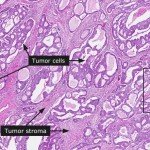If the symptoms or the screening tests indicate towards colorectal cancer, a person may be subject to some additional tests. These tests may be confirmed in order to diagnose and stage cancer. In this article we discuss a few tests that may be performed for colorectal or bowel cancer diagnosis.
Once a patient has been screened for colorectal cancer, additional tests may be required to be performed for diagnosing the cancer. These tests are done after a physical examination, taking into account the medical history of a person and results of screening tests. Some of the tests that may be performed for diagnosing this specific medical condition are:
Blood Tests: A person may be subjected to certain blood tests in order to help determine the presence of the disease and monitoring it. Some of the tests conducted are:
- CBC: Complete Blood Count: This is conducted in order to determine if the person has anemia. Some people may complain of anemia as a result of a bleeding tumor.
- Liver Enzymes: Liver functions are checked as colorectal cancer may affect functioning of the liver.
- Tumor Markers: Bowel cancer may at times result in specific substances – carcinoembryonic antigen (CEA) and CA19-9 that can be detected in the blood stream. These tests may be done on patients who have already been diagnosed with or have already been treated for this cancer. These are performed in order to determine the progression of the treatment or presence of a recurrent cancer.
Biopsy: In case of a suspected case of colorectal cancer, a biopsy may be conducted right while conducting colonoscopy or after a surgery.
- Microscopic examination: In this a small piece of tissue is removed and subject to tests in the lab. The sample is primarily examined under the microscope. This may also be done after a surgery is done to remove the tumor.
- Gene Tests: In addition to a biopsy the specimen may also be examined for changes in the genes. These tests also help determine the best way to treat cancerous cells.
- MSI Testing: The specimen obtained may also be tested for microsatellite instability (MSI). This is usually done in case of heredity non-polyposis colon cancer (HNPCC). In case an MSI test confirms a case of HNPCC the treatment is done accordingly. A positive HNPCC case would also mean that family members need to be cautious.
Imaging Tests for Colorectal Cancer Diagnosis:
Imaging tests is a term broadly used for describing tests conducted with the help of x-rays, sound waves, magnetic fields and radioactive substances to obtain images of the inside. Some of the tests in this category that can be performed for colorectal or bowel cancer are:
- CT Scan: A CT Scan is an x-ray that helps create cross sectional images of the body. Multiple pictures are taken, later combined and studied. It creates images of soft tissue present in the body. Before a CT Scan a person may be asked to drink a contrast solution or be injected with a contrast dye. Be sure to discuss any allergies your are susceptible to before a CT Scan. A CT Scan may also be combined with a biopsy.
- Ultrasound: For an ultrasound, sound waves are used for producing an image of the internal organs. A painless test it does not have any fear of exposure to radiation. The skin is lubricated with a gel and later a transducer moved over the area of which an image is desired. In the case of colorectal or bowel cancer endorectal ultrasound and intraoperative ultrasound may be performed. In endorectal ultrasound a transducer of a special type is inserted into the rectum to ascertain the spread of cancer. Intraoperative ultrasound is done at the time of surgery.
- MRI: Just like CT Scans, MRI Scan provides images of soft tissue. Radio waves and magnetic fields are used and patterns created by these recorded. These are later converted to images by a computer. This test takes longer than an X-ray and a CT Scan. Some patients may feel distressed by the overall environment of the room in which an MRI is undertaken. The test proves useful in determining the spread of cancer to other parts of the body.
- PET Scan: Positron Emission Tomography: For a PET Scan, a radioactive sugar is injected into the blood. The amount of material that is used is very nominal. The principal behind this test is that cancer cells absorb a large amount of sugar and after some period this radioactive sugar in the body can be imaged with the help of special cameras. It produces images of the whole body and helps ascertain the body parts affected by the cancer.
- Angiography: It is a special x-ray that is used for obtaining images of blood vessels. A contrast dye is injected into an artery which is followed by taking an x-ray. The arteries from which the dye passes are outlined. This test may be performed in order to determine the arteries supplying blood to the tumor. This can help plan a surgery better. A patient may find the process uncomfortable as it requires local anesthesia and injecting a catheter. In cases of colorectal cancer the catheter is injected in an artery that leads to the liver.
After the relevant colorectal cancer diagnostic tests have been performed on a patient the doctors review the results. In case the results indicate towards cancer, the tests of these results can help in staging the disease.
References:
Colon and Rectal Cancer: A Comprehensive Guide for Patients & Families by Lorraine Johnston – O Reilly Media Publicatons









